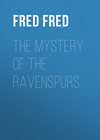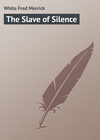Read the book: «Hard Pressed», page 6
CHAPTER XVI
THE NOOK
ON second thoughts, Phillips deemed it more prudent to remain in town overnight. There would be no difficulty in reaching Mirst Park to-morrow in time to open his campaign. Besides, when he came to think it over there were a good many things yet to be done. He ate his modest dinner in his modest lodgings and then sat down over a cigarette to think out the result of his day's work. The more he cogitated the more satisfied he was with his rate of progress.
He had got past the age when a man burns for revenge and that sort of thing. He infinitely preferred to make Copley smart and put money in his own pocket at the same time. As for his diamond-mining adventure, he expected to hear no more of that. He had been robbed of his precious plans and had no hopes of seeing his missing portmanteau again, but, like a prudent man, he was not inclined to cry over spilt milk.
He had thought it all out before morning, and shortly after ten o'clock set out to call upon Major Carden again. To his surprise he found that the Major had already breakfasted and was making preparations for going out. A big fur coat was carelessly thrown across an arm-chair, and Phillips smiled when he saw it. Probably the Major had struck a prosperous line. Possibly some of the ten-pound note had been laid out at an adjacent pawnbroker's.
"I didn't expect to see you this morning," the Major said genially. "Most infernally cold, isn't it? Looks like snow, too. Still, one must take the rough with the smooth when one goes racing."
"So you are going racing?"
"Well, I had thought of it. I don't often get the chance of treating myself, and my idea was to run down to Mirst Park this afternoon. You're going, aren't you?"
"Oh, yes, I am going down on business. But I wanted you to stay in town and do a little commission for me."
The Major's florid face fell.
"That is very awkward," he muttered. "You see, I promised to take my daughter with me. She is fonder of that kind of thing than I am, and the poor child seldom has an outing. In the old days of my prosperity Alice had her own horse, and deuced good across country she was. Can't you manage to put it off till to-morrow, Phillips? I shall be greatly obliged if you can."
Phillips reflected for a moment.
"Very well," he said. "I daresay it can be managed. I will see you on the course this afternoon and let you know what my address is. If you are discreet and cautious over this little matter there is a fair sum of money in it for you. You can drop me a note to-night, because there is no pressing hurry, and you can get the information this evening or early to-morrow. What you have to do is to go round to the Post Club and find out all the heavy bets which were made there with Selwyn in connexion with to-day's racing at Mirst Park. You must let me know with whom the bets were made and who made them. I think that is all. But I shall see you on the course later, and if anything crops up in the meantime I shall let you know."
There was nothing to prevent Phillips from making his way to Mirst Park. Half an hour later he took train from Waterloo and, arrived at his destination, proceeded to look out for lodgings. He had his own reasons for preferring rooms to an hotel. He needed to keep himself as quiet as possible. This matter satisfactorily settled, he turned his steps to the course, which was as yet practically deserted. There was little to indicate that a race meeting was in progress, excepting the shows and roundabouts and booths outside the stands and paddocks. There were the usual loafers picnicking on the grass, the usual litter of torn betting-tickets and papers scattered far and wide. Phillips passed along, looking eagerly about him. He wanted somebody who could give him certain information. He stood on the centre of the course, some four or five hundred yards from the ring. He appeared to be admiring the landscape, which was pleasant enough under the brilliant sunshine, though this was interspersed now and then by ominous-looking clouds which seemed to threaten snow later.
As most people know, Mirst Park course is situated in a kind of theatre, with rising ground behind the stands, so that it is possible for everybody to obtain a perfect view of a race from start to finish. Peeping out of the trees here and there were a few good-class houses, one of which, standing higher than the rest, towered over the top of the grand stand. There was the suggestion of a smile on Phillips' face as he adjusted his racing-glasses and made a close inspection of the house in question. He could see that it possessed a flat roof with a parapet around it. Phillips was still intent upon his examination when a policeman with a fine air of detachment strolled by.
"The best natural course I have ever seen," Phillips said with enthusiasm. "Have you got many like this in these parts, officer?"
"Not that I know of," the policeman said. "I suppose you have never been here before."
"I am from South Africa," Phillips said. "We've got nothing like this out there. I should like to have one of those houses yonder. It must be nice to sit in your own house and be able to watch all the races, especially in weather like this. Now there's that place at the back of the stand. I suppose you know who that belongs to. Some man with money, I expect?"
"I can't tell you, sir," the policeman replied. "I've lived here most of my life, but that house yonder has been empty for a long time. I understood it was taken by some Colonial gentleman last autumn, but I don't think he has been in it yet. Of course, I don't know for certain, because my beat is on the other side of the Common, and I am only on duty here on race days."
"Just so. What is the name of the house?"
"Let me see," the policeman said, reflectively. "Oh, I know. I think they call it The Nook."
The officer passed on, and Phillips replaced the racing-glasses in their case. Fortune was still on his side. He made his way through the woods up into the road which ran in front of the houses, and came at length to a pair of iron gates with the name of the house, The Nook, painted on them in gilt letters. The place appeared to be fairly well looked after. The paths were trim, but, so far as Phillips could see, there was little traffic through the gates and no sign whatever of wheels, either of cabs or motors. Peering through the shrubs, he noticed that the windows were fitted with curtains and blinds as if the house were inhabited. There was, perhaps, some risk in what Phillips was about to do, but he was prepared to take the consequences. He walked briskly up the drive until he came in front of the house. Most of the blinds were up. He saw evidences of refinement and luxury in the blinds and curtains, though it struck him as rather significant that the gardens had not had much attention bestowed upon them. Phillips hesitated before ringing the bell. It was an old-fashioned bell, with a drop-handle, and he could hear it clanging through the house with a hollow sound which suggested emptiness. As he expected, no reply came, though he rang two or three times. It was impossible for any one to see into the living-rooms, for the house was built upon a slope and the front door was approached by a flight of steps. Just as Phillips was turning away a man emerged from behind a belt of shrubs, followed by a truculent-looking bull-terrier. He looked like a gardener, though there was in his appearance that faint, intangible something which suggested a close familiarity with the turf. He eyed Phillips sourly and suspiciously, and none too politely requested to know his business.
"Are you employed here?" Phillips asked.
"Yes, I am," the man growled. "I am the gardener. And there's no one at home, if you want to know."
Phillips' assumption of annoyance was artistic. He turned away impatiently.
"Then Mr. Ronaldson is not here now?" he asked.
"Never heard the name," the gardener responded.
"But he used to live here. I knew him well in South Africa. He gave me his address two years ago and asked me to look him up if ever I came to England. I suppose he has gone somewhere else then. Do you happen to know the name?"
"No, I don't," the gardener said sulkily. "We've only been here a few months, and my master hasn't come into the house yet. He's a stranger, too. You had better make inquiries in the village."
Phillips expressed his thanks. He had found out pretty well all he wanted to know, and felt that if this repellent person had entertained any suspicions they were lulled to sleep by this time. He stood examining the repulsive-looking bull-terrier. He alluded to the animal's points approvingly. He spoke, too, as a man who knew what he was talking about. One or two remarks elicited the assent of the gruff gardener, who smiled slightly.
"Yes, he's a good dog," he said. "And capital in the house."
"Keeps the burglars away," Phillips laughed.
"Oh, I daresay he would if I left him here. But I don't live on the premises. I only look round to see that things are all right. I believe the servants are coming in next week."
"But why not have a caretaker?" Phillips asked.
"Oh, there's no occasion for that. They're more trouble than they're worth."
Phillips nodded and walked leisurely away.
CHAPTER XVII
A FAIR DAY'S SPORT
AT Mirst Park there was not very much for Fielden to do. The horses he had brought with him were a moderate lot, and, in the words of the stud-groom, there was not a racer amongst them. With his intimate knowledge of horse-flesh Fielden wondered why Copley kept such an indifferent stable, and where he got his animals. They were even worse than the ordinary run of equine rubbish usually foisted on the millionaire whose ambition it is to figure as a patron of the turf. Perhaps the whole thing was a blind. Perhaps the stud at Seton Manor was merely intended to cover Copley's rascality in another direction. At any rate, Fielden watched the first two races with mingled feelings of contempt and amusement. He had seen his employer's horses figure in both in the sorriest fashion, and till the four o'clock race was free to do as he pleased.
It was strange to move about the paddock, by the weighing-room and on the stand, rubbing shoulders with a score of men whom he knew well. The course was familiar to him, too. Were the past two years but a dream, and had he never left the scene of his former recreations? But no one recognized him. He strolled about listening to the roar of the betting-ring and the cries of the multitude, or threaded his way in and out among the horses. He even spoke to one or two jockeys whom he had once known, but none seemed to identify him.
Despite the crowd and the horses, the ladies on the stand and the members in the enclosure, however, it was a lonely business, and his face lightened as he caught sight of May Haredale seated by herself on one of the stands. He made his way eagerly to her side. She turned and smiled upon him. There was a healthy flush on her face. Her eyes were sparkling, and yet there was a suspicion of anxiety about her which Fielden had noticed more than once lately.
"Why are you alone?" he asked.
"Oh, it has only been the last few minutes," May explained. "We have a colt running in this race, and my father has gone to give instructions to his jockey. By the way, how badly your horses have cut up to-day. No, I am not particularly interested in this race, and I haven't so much as a pair of gloves on it."
"Then what do you say to a stroll?" Fielden suggested. "It is cold, and we look like having another fall of snow. I couldn't see the three o'clock race for the snow. Positively I hadn't the faintest notion what had won till I saw the numbers go up. Let us walk across the course to the starting-point and back. We shall have plenty of time."
May consented, and soon they were beyond the enclosure and past the white posts and rails towards the patch of gorse across the Downs, where the starter was already fidgeting about on his cob. Away from the noise and excitement of the ring the flush faded from May's face, and her eyes seemed inexpressibly sad.
"What's the matter?" Fielden asked anxiously. "We all change as we grow older. I suppose I am different from what I used to be. But I don't like to see you so quiet. It is so foreign to your nature, May. There was a time when you were all laughter and sunshine. Oh, dear, what a fool I have been, to be sure. How different things might have been if I had only had a little common sense. You don't know how I blame myself."
"Were you altogether to blame?" May asked. "I don't think so. You had no one to look after you from the time you were at school till you came into your property. You were merely a boy then, and you behaved like one."
"Oh, I know, I know," Fielden sighed. "But that's all past and done with. But don't talk about me. I am far more interested in you. I hope nothing has happened to increase your anxiety. You know what I mean."
May looked irresolutely at her companion.
"I ought not, perhaps, to tell you," she said. "I ought not to tell anybody. But, then, well, you are Harry Fielden, and I have known you all my life. If you didn't care for me quite as much as you do, if I had not cared for you – but, there, we need not go into that. It is my father who has worried me. It is extraordinary what a change has come over him lately. He used to be so kind to me, to let me do as I liked, and even when we were so poor that we didn't know where to turn for money he was always happy and cheerful. Why, a few months ago he would have laughed at the idea of my marrying a man like Mr. Copley. Now he is almost eager for it."
Fielden made no reply for a moment. A wave of indignation came over him. He caught his lip between his teeth and bit it fiercely. A year or two ago he would have smiled at the suggestion that Sir George would sanction a match between his daughter and a man like Copley. But during the hard and bitter months of his wanderings he had learnt some amount of cynical wisdom. He was no longer inclined, as he had been in the old days, to take every man at his face valuation. And, no doubt, when the pinch came, Sir George was just like the rest. He would speak loudly enough of his willingness to give up the old house and live in humble lodgings rather than have any slur cast upon his honour. But it would be different when this pretty theory came to be put to the test. Fielden forgot all about the racecourse. He heard nothing of the shouting crowd. The horses streaming to the post conveyed nothing to his eye.
"I want you to be candid with me," he said. "Is Sir George putting pressure upon you to marry that blackguard?"
There was something so vehement in Fielden's speech that May looked at him in astonishment.
"Surely you are going too far," she said. "Mr. Copley is not a gentleman, of course – "
"I tell you, he is a scoundrel," Fielden interrupted. "Believe me, May, I would not have spoken unless I had been bound to. That man is not fit to go into any respectable house. I cannot say more than that at present, because the secret is not altogether mine. But this much I tell you: Had there been no such person as Raymond Copley I should be a rich man at the present moment. I know that, but for the merest accident, there would be blood on that man's hands. You must not marry him, May. You must not give him the slightest encouragement. When I think of your associating with that rascal my blood boils. If the worst comes to the worst, I must tell Sir George what I know myself. It is with the greatest reluctance I entered Copley's employment; indeed, I only did so because there are certain things I want to find out and this seemed to provide a favourable opportunity. Otherwise, I would rather get my living by selling race-cards and sleep under a furze bush. But do you mean to say your father really insists on this?"
A rush of tears filled May's eyes.
"That is what it comes to," she rejoined. "It is only the last two days that I have noticed such a change in my father. Harry, do you think it is as bad as he says it is? He tells me that unless I consent to marry Mr. Copley we shall be ruined and be turned out of the house without so much as a penny. It seems incredible. I can't understand a man with an atom of self-respect who would compel a girl to marry him against her will. It isn't as if I were rich, or intellectual, or beautiful."
Harry thought he could understand. Indeed, any man could understand who looked down into the pretty, pleading, anxious face that was turned up towards Fielden.
"There is no accounting for people like Copley," he said. "He is the kind of man that has not an atom of consideration for anybody but himself. He has no heart or conscience, and the more unattainable a thing is the more he longs for it. He cannot win you; therefore, you are the one thing in the world that he passionately desires. God help the woman, however fascinating and beautiful, who becomes Copley's wife! It would mean years of brutality and neglect and self-contempt. You mustn't, May. I understand the duty you owe to your father, but no man has a right to exact such a sacrifice as that. Don't you think I had better see Sir George and give him a hint of the sort of man Copley is?"
May shook her head resolutely.
"I am afraid that would do more harm than good," she said. "I must fight my battle alone, Harry, and if you interfered my father might forbid you Haredale Park. He has already hinted that, if you had not come home again, I should have been willing to become Mrs. Raymond Copley, and if I were not allowed to see you I don't know what I should do. There is nobody else I could confide in. But I will let you know how things go on. We had better go back. I feel better for this confession."
But it seemed a hopeless business, and Fielden's face was sad and gloomy as he strode alongside May towards the stand.
Ah! but hope was not dead yet.
CHAPTER XVIII
AN EVENING VISIT
FOR once Sir George Haredale did not seem to be in the least pleased to see Fielden. He was standing on the lower steps of the stand talking to Major Carden with the air of one who is conversing with an old acquaintance. By Carden's side was his daughter, eager and interested, following all that was going on around her with the zest and enjoyment of a child.
"Oh, here you are," Sir George said fussily. "I was beginning to wonder what had become of you. Carden, this is my daughter. Major Carden and I were at Eton together. We used to do a good deal of racing before you were born."
The Major took off his hat with a flourish.
"Charmed to meet the daughter of my old friend," he said, "charmed. Ah, those were pleasant days when one had youth and strength and a banking account which appeared to be inexhaustible. Now I deem myself fortunate if I can steal a day off occasionally to get down to a suburban racecourse. Let me present you to my daughter. My dear Alice – "
"But I know her already," May Haredale cried. "We were at school together. I had no idea that my father and yours knew one another. I am so pleased to see you again. Father, Alice Carden was my greatest friend all the years I was at Eastbourne. We parted promising to write to one another regularly, but somehow or another we have never corresponded. But now that I have met you I won't lose sight of you any more. Major Carden, you really must let Alice come and stay at Haredale Park with me. I want her for a long visit."
Carden professed himself to be delighted, and this in all sincerity. He began to see visions of a snug and comfortable time, away from dingy lodgings and vilely-cooked food to which he had never become accustomed. The two girls paired off, and the Major strolled towards the paddock gates, for he had noticed Phillips there, evidently waiting for a chance to speak to him.
"Got any instructions?" the Major asked.
"Nothing fresh," Phillips explained. "I want you to do exactly as I asked you, and if you can manage it this evening, after you get back to town, so much the better. I have written my address on the back of this card, and it is possible I may be here for two or three days longer. I want you to find out what wagering there was to big money with Selwyn at the Post Club to-day, and wire to the address on this card. It is more than probable that, before the week is out, I may be able to put a good thing in your way. I suppose I can come round and see you whenever I like."
The Major thought that would be all right. It would be just as well, perhaps, to get his daughter out of the way. With diplomacy he might contrive to expedite the invitation to Haredale Park, so that he could have the ground clear without fear of interruption. He returned to the place where his daughter was waiting for him.
At a sign from Phillips, Fielden came forward.
"Well," he asked, "how are you getting on?"
"Splendidly," Phillips replied. "I have been far more fortunate than I anticipated. We will get some fun out of Copley and Foster yet. From your point of view I daresay you may think I am wrong. But I mean to make money out of this. I will expose Copley and fill my purse at the same time. You wonder what I am driving at? Can you manage to stay here over to-morrow?"
"I think so," Fielden said.
"That's good. In that case we can push our investigations farther and, with any luck, before the week is out we shall not only know where Copley gets his money, but how he makes it. Of course, we know that he doesn't even begin as a millionaire; we know that he is an unscrupulous adventurer. But he has the command of ready money, and we wish to know how he makes it. As a matter of fact, I know that already. But there are a few weak points in my case, and we can't make a definite move till these are cleared up. Now I want you to have dinner with me in my lodgings. I told my landlady I might have a friend staying with me, and she will be ready to put a bedroom at your disposal."
"Why this mystery?" Fielden asked.
"Oh, it is no mystery. I only want to interest you. After dark we shall indulge in a little quiet burglary, that is, if you don't object."
"It is not an alluring prospect," Fielden said.
"Of course it isn't," Phillips agreed. "But when you are dealing with scoundrels it is necessary to use their own weapons. I presume you are as interested as I am in the exposure of Copley and Foster and all their methods."
"Up to the hilt," Fielden said between his teeth. "Poor as I am, I would give all I possess to bring that about. I would give five years of my life to manage that between now and Derby Day. And if necessary I can find some money. I am better off than I expected, but I intended to keep the money for a start in life later. Still, if you want it and will promise to put it to a good use, I will give you every farthing cheerfully. You have only to say the word."
Phillips chuckled.
"Oh, there's no occasion to do that, sir," he said. "Keep the money in your pocket. I shall have enough and to spare before long. I mean to drag Copley's plunder from between his teeth. I will take all I can get from him, and when the time comes we shall drop a hint in the proper quarter, and there will be an end to Raymond Copley. Within three months you will see that man in gaol. You needn't be alarmed for Miss Haredale. She is as safe from that man as if she were the daughter of the King. I had better be going, because it is as well that we should not be seen talking together for too long. I have scribbled my address on the back of this card, and shall expect you about half-past seven."
Fielden asked no more questions, but returned to his friends with a vivid sense of curiosity. He listened to Major Carden's flamboyant talk, and as he bowed to Alice Carden could not help thinking what a pretty and refined girl she was. He made his excuses for not returning to Haredale, and was faintly amused to see how relieved Sir George appeared to be.
"No, I can't get back to-night," he explained. "I have several things to do here. But I hope to see you on Sunday, if I may be allowed to come over."
"Of course, you may," May smiled, as she held out her hand. "Miss Carden is coming to stay with me to-morrow. I have persuaded her to come at once. I am ashamed to have neglected her so long."
Fielden finished his business, saw the stud-groom and the horses safely on the rail, and then went to the retired part of the village where Phillips' lodgings were situated. It was little more than a cottage, but the place was neat and clean, and the cooking left nothing to be desired.
"It is only a bit of fish and a steak," Phillips said cheerfully, "but you will find it beautifully served, and as to the wine, well, I got that myself, and I know it is everything it should be. Please sit down and make yourself at home. We can discuss matters over our cigars. There's nothing like racing to give you an appetite. I only hope it won't snow before morning."
"I hope not," Fielden said. "To all intents and purposes the racing was spoilt this afternoon by the snow, and it is very odd that no one saw a yard from start to finish of the three o'clock race. It was most annoying."
"Was it?" Phillips asked. "Well, I confess I didn't find it so. Yesterday at the time of the three o'clock race I was at the Post Club, and, singular to say, we had the same blinding snowstorm in Covent Garden. Now it surprises you, but from your point of view and mine that snowstorm was the most fortunate thing that could have happened. When I sat smoking my cigar in the Post Club there came to me the inspiration of a lifetime. I seemed to see in a flash exactly what had happened, and soon I shall know to a dead certainty. You must restrain your curiosity for a little longer. You will probably know all about it before you go to bed. Try one of these cigars. They are excellent."
Fielden had hardly got his cigar aglow before the landlady came in with a telegram, which Phillips opened eagerly. There was a smile of triumph on his face as he handed it to Fielden.
"What do you make of that?" he asked.
"I can make nothing of it," Fielden said. "It is a wire to the effect that no important wager was made this afternoon on the three o'clock race at the Post Club, and is signed Carden. I presume that is our stout friend with the florid face and ingratiating manner, who was talking to you this afternoon. But how it helps us I haven't the ghost of an idea."
Phillips rose and threw his cigar in the fire.
"Come," he said. "It is time to start. You haven't much longer to wait."















